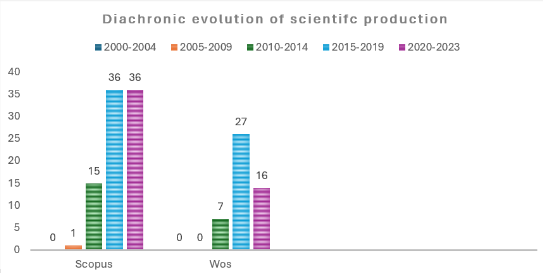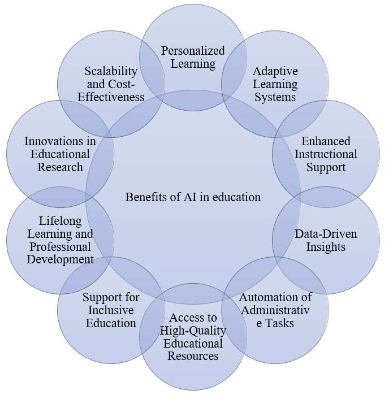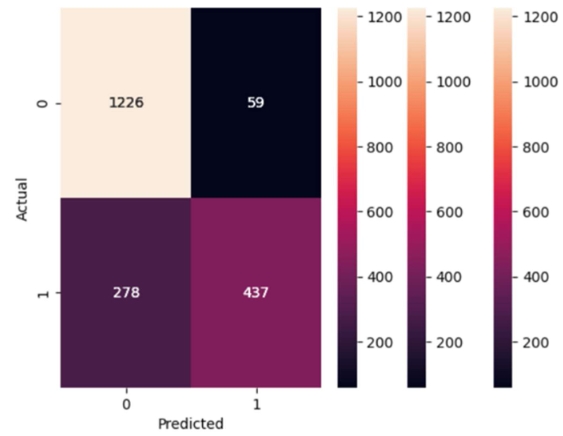Digital literacy and artificial intelligence literacy in teacher training
Abstract
The research titled “digital and AI literacy in teacher training” seeks to bolster the professional training of future educators in all phases of teacher education within Germany, with a particular emphasis on integrating digital and artificial intelligence (AI) literacy into contemporary educational practices. Recognizing the escalating importance of digital competencies—an urgency that the COVID-19 pandemic underscored globally—this initiative establishes a cohesive framework connecting universities, seminar leaders, and schools. Its core objective is to enable student teachers to adopt and implement digital methodologies in the classroom while providing continuous, contextually relevant training for in-service educators. Through this interconnected structure, the research aims to bridge educational theory and practice. Methods: The research applies a Design-Based Research (DBR) methodology, facilitating a dynamic process in which educational tools and approaches are developed, tested, and refined in real-world settings. To assess efficacy, the research utilizes online questionnaires aligned with established digital competence frameworks, such as the European DigCompEdu model, enabling educators at all stages of teacher training to self-assess their digital and AI literacy skills. The geographical context of Bavaria in southern Germany is specifically referenced, where the research pilot takes place to set a scalable example for broader implementation. Findings: Preliminary evaluations reveal that the module-based structure effectively enhances participants’ digital competencies. Teacher candidates report a higher degree of readiness to implement digital teaching tools, collaborate effectively online, and navigate AI-related resources in classroom contexts. This reflects an overall improvement in digital confidence and capability, particularly in areas like content creation and pedagogical communication. Conclusions: The research’s structured approach, fostering institutional collaboration and phased integration of digital competencies, highlights an effective model for embedding AI and digital literacy in teacher education. Continuous assessments and feedback loops ensure its relevance across training stages, enabling educators to remain adaptive and responsive to new educational technologies. Ultimately, this model may serve as a blueprint for other regions and countries aiming to update and enhance their teacher training frameworks in response to digital transformation demands.
References
[1]Stifterverband. Teacher training monitor: Teacher training in the digital world. Available online: https://www.stifterverband.org/medien/monitor_lehrerbildung_lehramtsstudium_in_der_digitalen_welt (accessed on 15 August 2024).
[2]Standing Conference of the Ministers of Education and Cultural Affairs (KMK). Strategy for education in the digital world. Available online: https://www.kmk.org/themen/bildung-in-der-digitalen-welt/strategie-bildung-in-der-digitalen-welt.html (accessed on 12 June 2024).
[3]Federal Ministry of Education and Research (BMBF). Vocational Education and Training Report 2021. Available online: https://www.bmbf.de/SharedDocs/Publikationen/de/bmbf/3/31684_Berufsbildungsbericht_2021.html (accessed on 12 March 2024).
[4]Döring N, Bortz J. In: Research methods and evaluation in the social and human sciences. Springer; 2016.
[5]Reinmann G. Reader on design-based research. Available online: https://gabi-reinmann.de/wp-content/uploads/2018/06/Reader_DBR_Juni2018.pdf (accessed on 19 June 2024).
[6]Kromrey H. Quality and evaluation in the university system. In: Stockmann R (editor). Evaluation research. Hogrefe-Verlag; 2004. pp. 233–258.
[7]Apel H, Kraft S. Online teaching in continuing education. In: Planning and design of net-based continuing education. Bertelsmann; 2003.
[8]Eichhorn M. Measuring digital competences of university lecturers: Validation study of a competence grid. In: Proceedings of the DeLFI 2018—The 16th E-Learning Conference on Computer Science; 10 September 2018; Frankfurt, Germany. pp. 69–80.
[9]Eichhorn M, Tillmann. Development of a competence grid to record the “digital competence” of university lecturers. In: Proceedings of the 25th Annual Conference of the Society for Media in Science; 5–8 September 2017; Chemnitz, Germany. pp. 209–219.
[10]Redecker C. European framework for the digital competence of teachers: DigCompEdu. Available online: https://mz-hofgeismar.de/flip/digcompedu/files/assets/common/downloads/publication.pdf (accessed on 22 June 2024).
Copyright (c) 2025 Author(s)

This work is licensed under a Creative Commons Attribution 4.0 International License.









